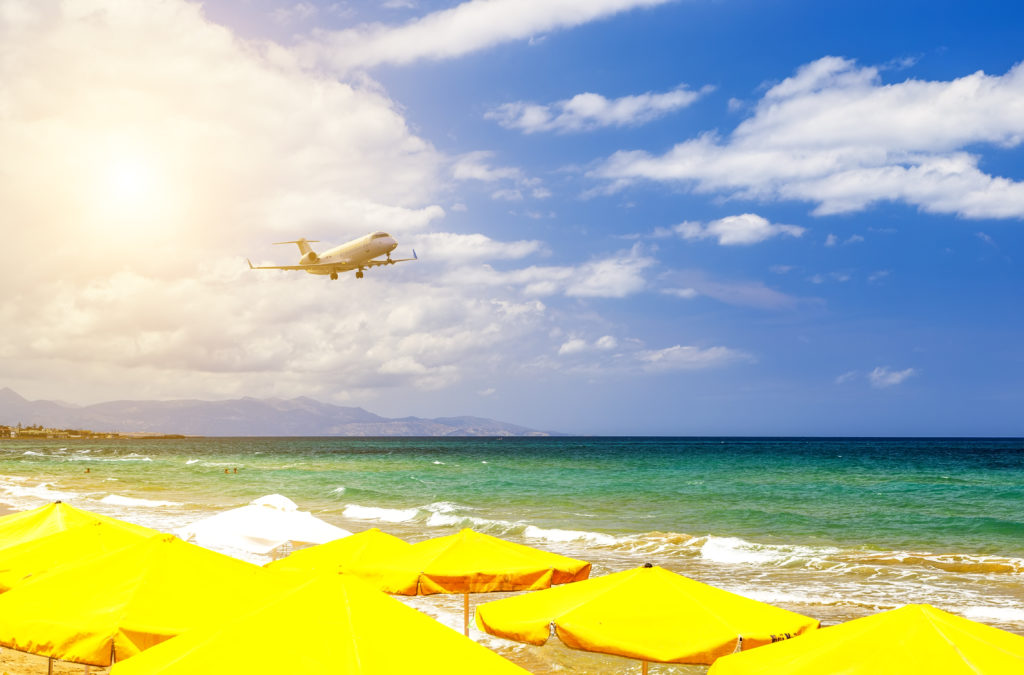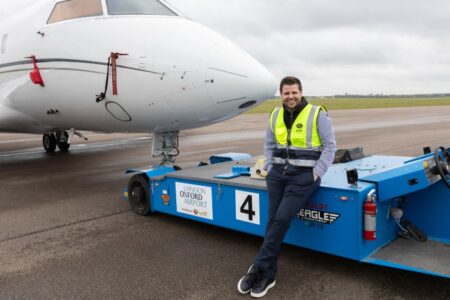As travel restrictions begin to lift and the summer season starts, European destinations are seeing an increase in demand that most believe will be sustained.
According to Wing X’s latest report, there were 2,634 business jet and turboprop flights flown in Europe on June 21st, 2021, the summer solstice. This was 95% busier than the same day last year, and almost the same as 2019.
One of the most popular summer destinations has been Portugal, where business jet arrivals into the country have gone up by 66%.
“In Portugal the level of activity has been high since April. It has been boosted by events such as Moto GP, F1 Grand Prix, Champions League Final and EU summits and more tourists visiting,” says Ricardo Pereira, CEO of Portugal-based OMNI Handling.
“The business aviation sector is booming now that we are in the summer season and the major restrictions imposed by the Portuguese Government due to Covid-19 are being lifted.
“As the summer approaches we are seeing an increase in leisure travel bookings, especially in the Algarve and Lisbon where we are beating all our records,” he says.
“Spots like Faro in Portugal or Cannes in France will be fantastic places to enjoy summer as usual this year, but I also think customers will want to discover some hidden gems, in places that are less crowded like Avignon and Provence in the South of France or Trieste, between Italy and Croatia,” says Jerome Ferasin, chief commercial officer of general aviation, SkyValet.
New customers
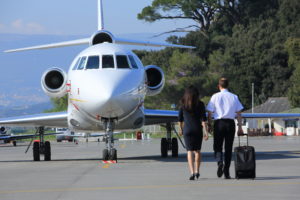
For the first three weeks of June, business aviation activity in Europe was down just 1% in comparison to June 2019.
“Covid-19 has brought a lot of people to the private charter industry. We are seeing a spike and it’s really starting to get going,” says Andy Christie, group private jets director at Air Charter Service. “We expect the bulk of Europe to be open for the July and August period.”
Leisure demand is also surging across Mediterranean resorts, such as Malaga, Ibiza, Olbia, and Mykonos.
“This year we’ve seen popular Spanish destinations in April and May switch from Barcelona and Madrid to Ibiza and Mallorca instead,” says Pereira.
Sky Valet provides services in 31 airports and five countries in Europe with a mix of destinations and has witnessed growth throughout June. “We have a good overview of the market,” says Ferasin. “Since early June, we’ve seen a huge increase in handling requests across the whole network and we expect to break records in places like Ibiza, Palma and St Tropez.
“Popular summer spots are becoming even more successful this year, as customers have been frustrated after two years of not being able to travel anywhere.
“We have seen a lot of interest for less crowded places to visit this summer, as a result of Covid-19. Some underrated places for summer like Bulgaria, Cuneo in Italy or Beziers Cap d’Agde in South of France have seen an unusual increase in demand.
“The summer season at French destinations such as Cannes, Nice and St Tropez and Portugal started later than expected this year. It usually starts in early May, whereas this year it has been early June.
“That’s mainly due to the last lockdown, the late wave of restrictions for foreigners and the cancellation of international events,” says Ferasin.
Positivity
Although not every summer destination in Europe is experiencing such a strong bounce back, many industry experts are still hopeful for a positive summer season. They believe that customers are eagerly awaiting popular holiday hot spots to open so they can travel again.
“From our point of view, the level of activity has not yet surpassed the 2019 amount,” says Rui Costa, operations manager at charter company Euro Jet. “However, the demand and desire to travel is enormous.
“If the pandemic backs down and countries manage to open-up or ease their entry restrictions, by the end of August we might be looking at another record summer season.”
“For the summer season, we expect this year’s levels of activity to be close to 2019’s.
“For the whole year, we will still be around five to 15% below 2019, but we expect that 2022 will be better in comparison to 2019,” says Ferasin.
Christie believes that as customers begin to understand the true flexibility of flying privately, the recovery will pick up at an increased pace.
“People are realizing if the restrictions change and they are on holiday, we can simply arrange to bring you back quickly. You don’t have the issues that you might have when flying commercially.
“We can also go to some of the airports that aren’t going to be served by major airlines,” he says.
Costa agrees, “As the airline sector still has not fully recovered and some routes have not been reestablished yet, there has been increased demand to fly privately. The business aviation sector offers flexibility, time savings and most importantly safety, which attracts a lot of travelers who have not considered flying privately before.”
“It’s the convenience and the flexibility that you’re paying for,” adds Christie. “A private charter is nothing more than a time machine.”
Passenger paperwork
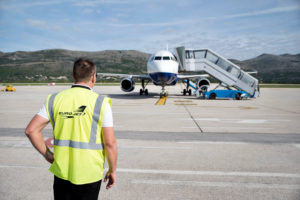
Despite the efforts of the EU, there is significant variation in Covid-19 rules and regulations throughout Europe.
“Each country has its own rules and requirements in place. We recommend that all travelers check the current restrictions and requirements before booking the trip and then once again right before departure,” says Costa.
“Each flight has to be carefully analyzed to ensure the legislation is followed. For example, the Azores and the island of Madeira, which are sought after destinations for green tourism have specific rules which may differ from the continent,” says Pereira.
Rules and regulations can change quite suddenly and drastically in the current climate. “We have seen situations when the requirements changed while the passengers were in the air and on the way to a certain destination,” says Costa. “This has resulted in them being denied landing and having to fly to another country which would accept them.
“Even though more people are getting vaccinated, the situation is still very fluid because of newly discovered variants and emerging local outbreaks occurring in certain regions.”
It is also important to understand customer’s obligations to complete Covid-19 related paperwork.
“There is more onus on passengers for filling out forms. The responsibility is on the customer to ensure they are able to travel,” says Christie.
Despite this, the industry is doing everything it can to make trips to Europe as easy and stress-free as possible and they have a years’ experience on their side.
“We are well prepared for the upcoming summer season. We have a team to continually monitor all the current measures and provide our operations department with constant updates,” says Costa.
“It is vital to stay up-to-date with all the updates regarding Covid-19 restrictions, procedures and rules imposed by governments and health authorities,” says Pereira. “To comply with the legislation and to have a team fully dedicated knowing every detail about this subject is essential to provide accurate information so that our clients can properly manage their own flights.”
Bounce back
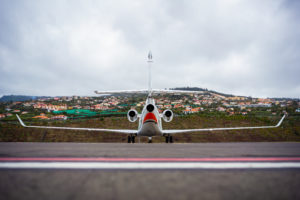
A recent study by European network manager Eurocontrol predicts that the aviation sector will not return to pre-Covid levels of activity for at least three to four years, but Christie believes private aviation will recover sooner: “I think we are going to see a far quicker bounce back for private charter.
“Potentially, rather than just the spike in activity for the summer that we always get, we’ll see the activity levels drop down to a higher base level than they were in 2019. By the end of this year, I think we’re going to be very close to 2019 levels, probably exceeding them slightly.”
Costa also believes that the bounce back will be faster for private aviation. “We believe that activity for private aviation might reach pre-Covid levels even before the summer of 2022, as the sector adjusts quickly to new circumstances,” says Costa.
“As long as we do not return to an emergency state with new restrictions we are in a good position to say that next year we will have a better year than 2019.
“I think the aviation sector will take three to four years to reach the level of pre-Covid activity. It will be a gradual process that will happen naturally,” says Pereira. λ


